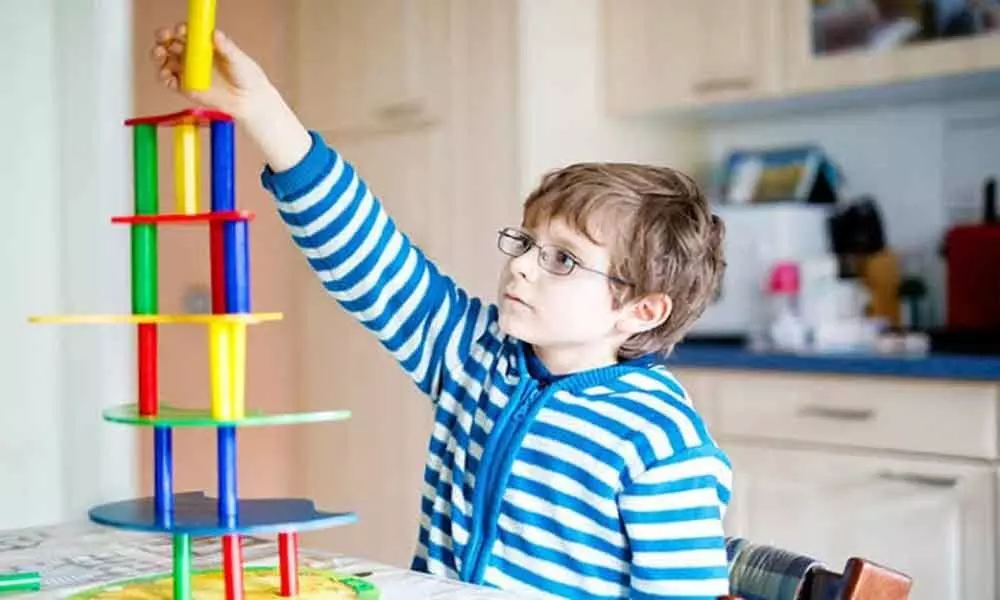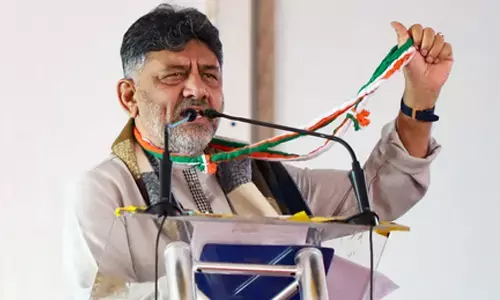Cognitive development in children is not limited to the child's academic skills: Stages and activities

Most people think that the term cognitive development may refer to the ability to learn and get an education. But cognitive development in children is not limited to the child’s academic skills.
Most people think that the term cognitive development may refer to the ability to learn and get an education. But cognitive development in children is not limited to the child's academic skills. As a child grows, the child's brain undergoes various changes, enabling them to think and learn besides memorizing or remembering. From infancy to adolescence, children go through different stages of cognitive development, wherein each stage builds a strong foundation for the next one.
In this MomJunction article, we help you understand cognitive development in kids, its various stages, and a parent's contribution towards their kids' intellectual development.
What is cognitive development in children?
Cognitive development in children refers to the development of their thinking process that involves the processing of information, reasoning, language development, intellectual development, and memory. A child's cognition also helps them to explore and resolve things.
Cognitive development is important in early childhood through adolescence as it is associated with brain development. The development of the thought process enables children to understand the world around them.
This development, however, happens over the course of an individual's childhood.
How to develop cognitive skills in children?
Parents can play a key role in the intellectual development of a child.
As a parent, you can encourage your children to explore things to improve their ability to think and learn. You can also put forth questions that enable them to find a solution to a problem. Here are a few more ways in which you can promote cognitive development in your child.
Interact: When you talk to your baby, use names for things that are commonly used. They learn the names of things and people when they hear you say it.
Touch and explore: Let them touch and explore the things they come across.
Identify sounds: Teach them to identify the different sounds they hear every day and relate it to the object or person.
Sing: Sing a song and get them to sing along with you. It helps them associate the words with the objects or images in a book.
Identify alphabets: Expose the toddlers to books or puzzles that contain the letters of the alphabet. It is the best way to introduce them to the alphabet.
Shapes and colors: Introduce them to shapes and colors by describing the objects.
Engage in activities: Try to find out what your child is interested in and encourage them to do that more often. For example, if the kid loves sketching or painting, then encourage them to paint more. If they like books, get them new books they can read.
Go to interesting places: Take them on hikes, walks on the beach and in the forests. Children must be exposed to nature from a young age. Play games in the park with them to help develop their motor coordination skills. Physical outings are a good way to get them away from laptops and smartphones. Plenty of exercises will help them to get good quality sleep at night. Outdoors is also a good way to interact with other children and develop their social skills.
Answer their questions: Patiently listen to your child's queries and give them a logical explanation using examples or demonstrations. Never discourage children from asking questions. They won't always comprehend what is being told to them. Try and make it as simple as possible. Children are curious by nature.
• Offer choices: Provide them with choices and let them make their own decisions.
• Exposure to games: Expose them to a variety of games that improve their creativity and problem-solving skills.
Though it requires a good amount of time for a child to understand things, they eventually learn it. You can also try a few activities for active cognitive development.
Cognitive activities for children
There are various activities that you can try to help improve a child's cognitive skills. The table below lists an activity for cognitive development in children of different age groups.
Cognitive development does not follow a set format but is influenced by various factors. Each child has different cognitive strengths, and cognitive training can help improve their less dominant skills. A little guidance and encouragement from the parents are what a child needs to figure out the things around him/her.


















